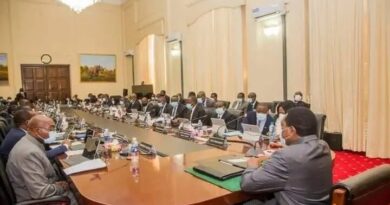Ministry of Finance Releases K16.8 Billion in July 2024 to Support Developmental Programmes and Public Services
The Ministry of Finance and National Planning has announced the release of K16.8 billion in July 2024 to fund various developmental programmes and ensure the continued delivery of public services across Zambia.
According to Finance Minister Dr. Situmbeko Musokotwane, the funds were allocated to key sectors, demonstrating the government’s commitment to policy effectiveness and economic stability.
Out of the total amount, K4.1 billion was allocated to cover the public service wage bill, ensuring the timely payment of salaries for civil servants, including health workers, teachers, and Zambian diplomats abroad. An additional K4.3 billion was spent on debt service, with K3.1 billion directed toward domestic debt, K321.1 million for external debt, and K883.8 million for the dismantling of arrears.
The Ministry also released K5.6 billion for transfers, subsidies, and social benefits, supporting essential services across the country. Notable expenditures included K494.4 million in grants to schools to support the free education policy, K358.9 million for the operations of hospitals and grant-aided institutions, and K241.5 million for the Local Government Equalization Fund.
Furthermore, K2.4 billion was allocated to the Farmer Input Support Programme (FISP), and K1.7 billion was provided to the Food Reserve Agency (FRA) to enhance food security. The Treasury also released K1.8 billion for the implementation of various government programmes and general operations, including K300 million for the procurement of drugs and medical supplies and K111.9 million for donor-funded programmes.
Capital expenditure amounted to K968.1 million, with K381 million earmarked for road infrastructure, K345 million for medical equipment and infrastructure, K122.5 million for school infrastructure projects, and K118.6 million for infrastructure projects under various ministries, provinces, and agencies.
Reflecting on the July 2024 budget releases, Dr. Musokotwane highlighted the consistent flow of funds from the Treasury as evidence of the government’s effective policy implementation. He noted that despite challenges such as energy and food security issues, the economy has remained resilient.
“Our policies have helped the economy to remain buoyant, despite energy and food security challenges. However, significant challenges still remain, such as poverty and vulnerabilities escalated by the drought and electricity disruptions,” Dr. Musokotwane said.
Looking ahead, the Finance Minister reaffirmed the government’s commitment to boosting private sector investment, particularly in agriculture, livestock development, tourism, manufacturing, mining, energy, and the green economy.
He also emphasized the importance of leveraging modern technology and prioritizing social protection interventions to drive economic growth and build resilience.
Dr. Musokotwane concluded by analyzing the July 2024 budget performance in line with the 8th National Development Plan.
He cited substantial progress in economic transformation, including a more stable macroeconomic environment, the implementation of the free education policy, expanded bursary schemes, and regulatory reforms aimed at enhancing transparency in debt management and improving public procurement efficiencies.



